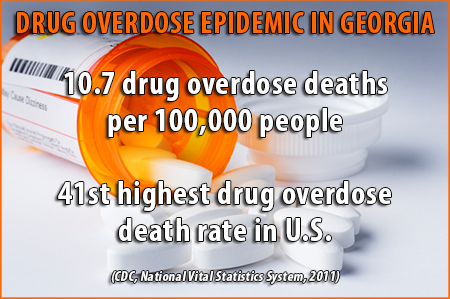The U.S. Department of Health and Human Services (HHS) reports that since 1999, more than 125,000 deaths have resulted from overdoses related to opioid pain relievers, calling the trend a national epidemic.
On July 17 and 18, the health and human services department hosted a meeting, “Advancing Policy and Practice: A 50-State Working Meeting to Prevent Opioid-Related Overdose,” in Washington, DC—the first-ever convention of governmental partners from all 50 states that focused solely on this issue.  “I am encouraged by HHS’ initiative to bring states together on this important topic and recognize the impact that this epidemic is having on families and communities across our nation,” said DBHDD addictive diseases director Cassandra Price. “I look forward to continuing our collaboration with partners in other states as we work to reduce opioid abuse in Georgia and across the U.S.”
“I am encouraged by HHS’ initiative to bring states together on this important topic and recognize the impact that this epidemic is having on families and communities across our nation,” said DBHDD addictive diseases director Cassandra Price. “I look forward to continuing our collaboration with partners in other states as we work to reduce opioid abuse in Georgia and across the U.S.”
DBHDD staff joined peers from across the nation at the meeting, which featured presentations from national experts who provided a comprehensive overview of the epidemic, highlighting many of the intervention strategies being used throughout the U.S. to address opioid abuse. States also met in teams to discuss state-level planning for prevention strategies, access to medication-assisted treatment, including Naloxone, a medication used to reverse the effects of opioid overdose, and strengthening health care provider accountability.
Visit our website for more information on substance abuse prevention efforts in Georgia.
Prescription Drug Overdose in the United States: Fact Sheet (CDC)
1 reply on “DBHDD participates in national opioid abuse meeting”
One excellent way of reducing the harm of opioid addiction would be to comply with the federal Medicaid rules and allow Specialty Services (as Opioid Maintenance Providers are listed on the website) to bill for treatment. This would significantly reduce the financial burden of active opioid addiction on the Medicaid system as so much prescription fraud is paid for by Medicaid. On the other hand, treatment is usually less than $4,000.00 per year in an outpatient setting – far less expensive than residential treatment, which is also less effective.